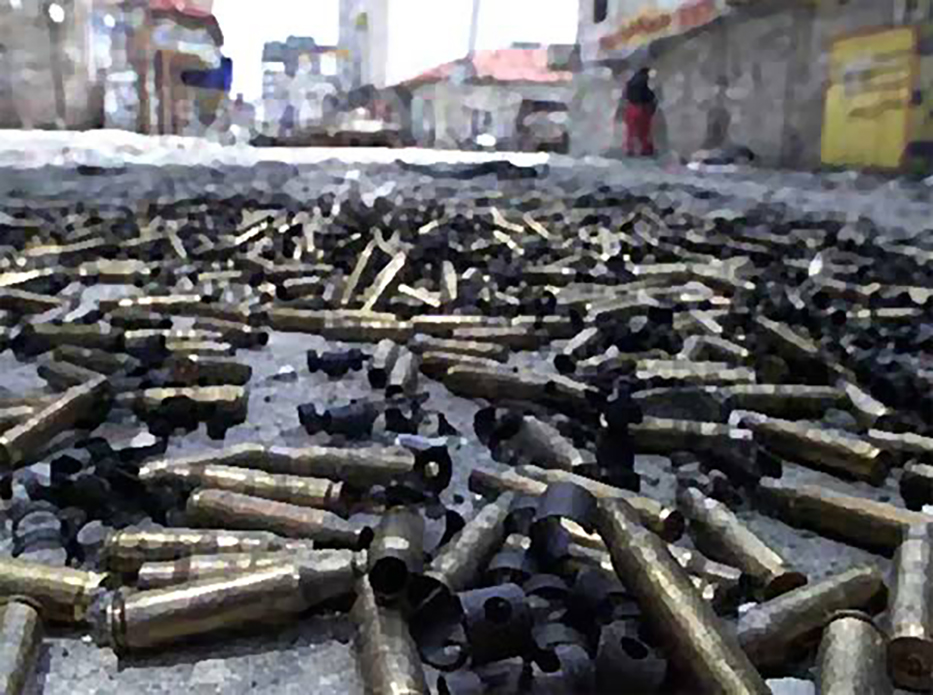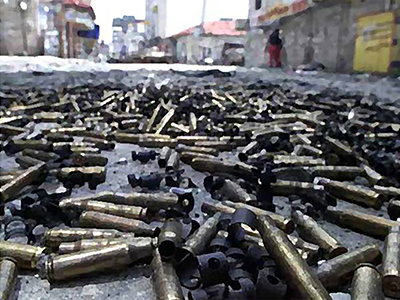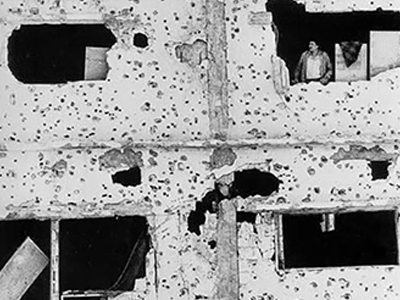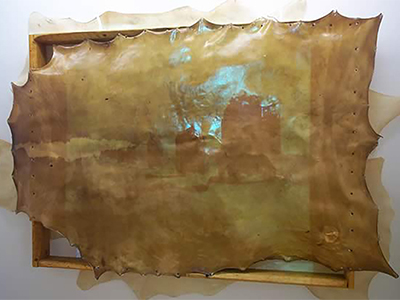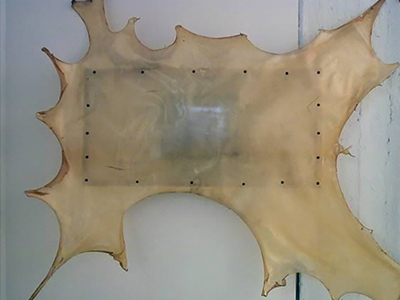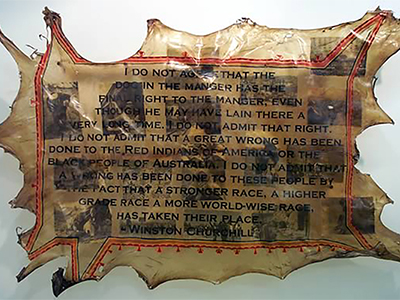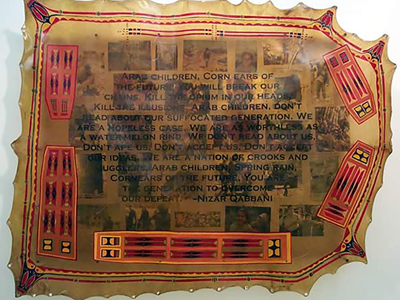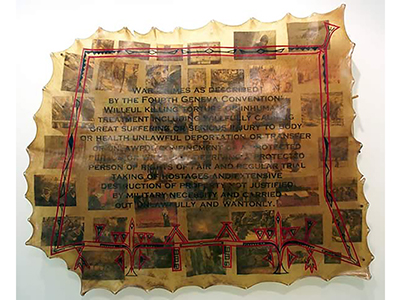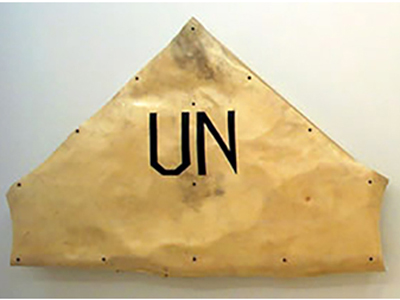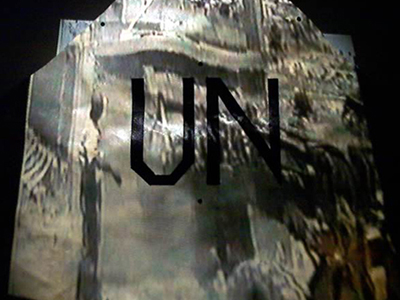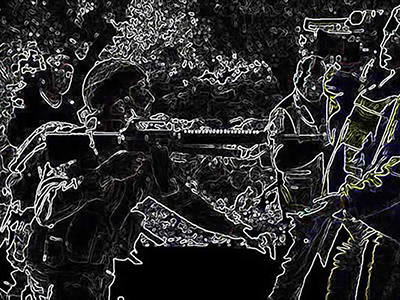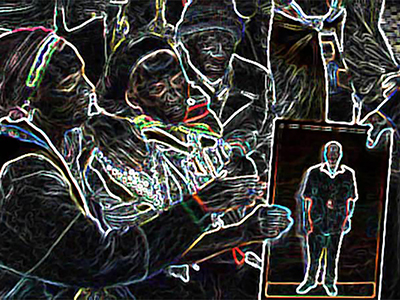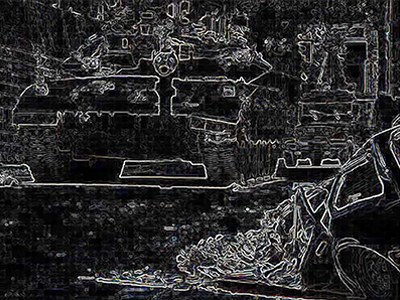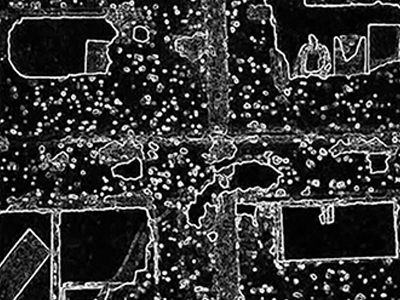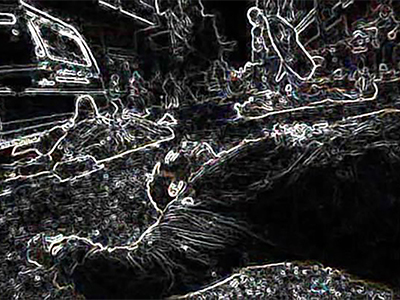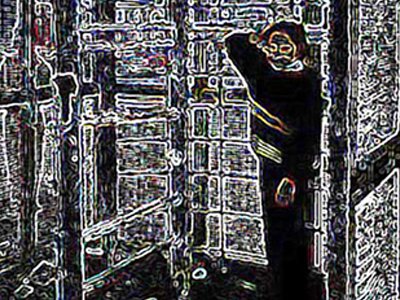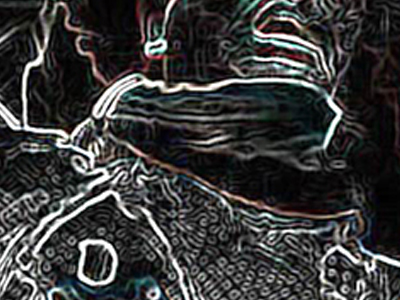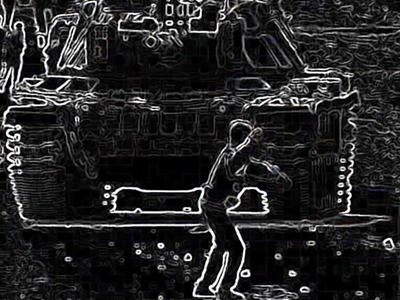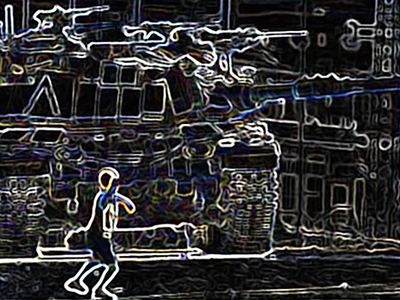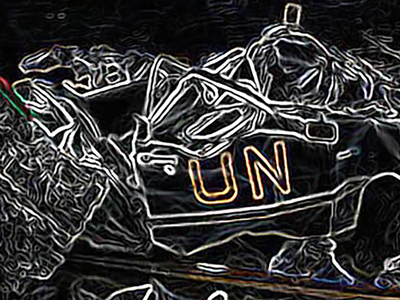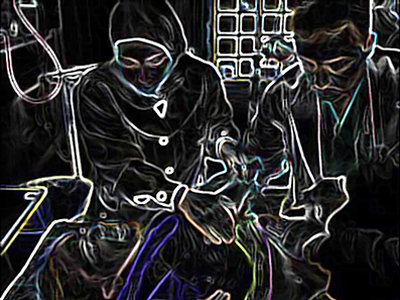Project Description
Colonial Artifacts
2003
C-print face-mounted on gallery plexi, with floating box mount
Edition of 4, 37 1/4” by 50”
![]()
Empty machine gun shell casings fill a battered street in the Gaza Strip of the Occupied Territories of Palestine. This scene is sadly typical of the life of the people of Gaza. Military incursions into the refugee camp are frequent and quite deadly. Gaza is the most densely populated place on earth. The Gaza Strip is only 28 miles long (on the coast of the Mediterranean) by 4 miles wide. 1.2 million Palestinians live on 70% of the land while illegal Israeli colonial settlements now occupy 30% of the land with 6,000 settlers. One third of the Palestinian population live in the refugee camps. The UN estimates in 15 years the Palestinian population will double. Israel seized Gaza from Egypt in 1967.
This digital image was enlarged, cropped and manipulated on an Apple G4 computer using Photoshop. The original photo, and many more, was forwarded to Ringsby by Palestinian TV cameraman for the purpose of educating the American public of the grim realities of Palestinian life through art and working towards peace and reconciliation.
Winter Count paintings were made by the Plains Indians such as the Cheyenne. These history paintings on buffalo robes used pictographs representing significant events in lieu of a written language. As these events were recorded in the dead of winter hence they were called Winter Count paintings. The Box and Border design featured here was once painted on the backs of Cheyenne buffalo robes worn in cold weather. Here they are painted in all natural pigment like the originals. Ringsby has taken this tradition and reworked it combining images from Palestine as he wishes to forge a parallel between the histories of these oppressed native peoples. The images used in Ringsby’s Winter Count paintings were either sent to him by friends in the peace movement in the Occupied Territories or from the UN. The text was found by the artist in the course of his exhaustive research preparations for “The Indian Wars-Palestine.”
Full rawhide skins have been impregnated with video and photographic images of atrocities committed in the Occupied Territories and Israel. The historical allusion is to the buffalo hide painting of the Plains Indians that artistically documented their battles. Neither people had a voice in the media; both watched helplessly as their cultures were leveled. The world was not moved by the plight of the Indian nor of the Palestinians until it was too late.
CHECK OUT ALL THE GALLERIES
